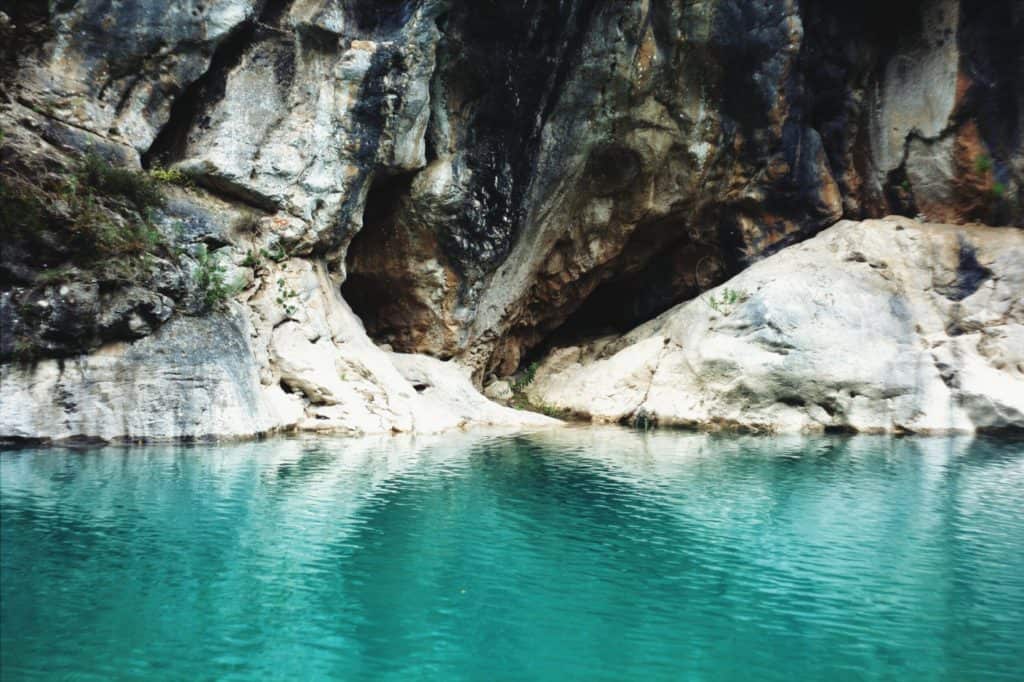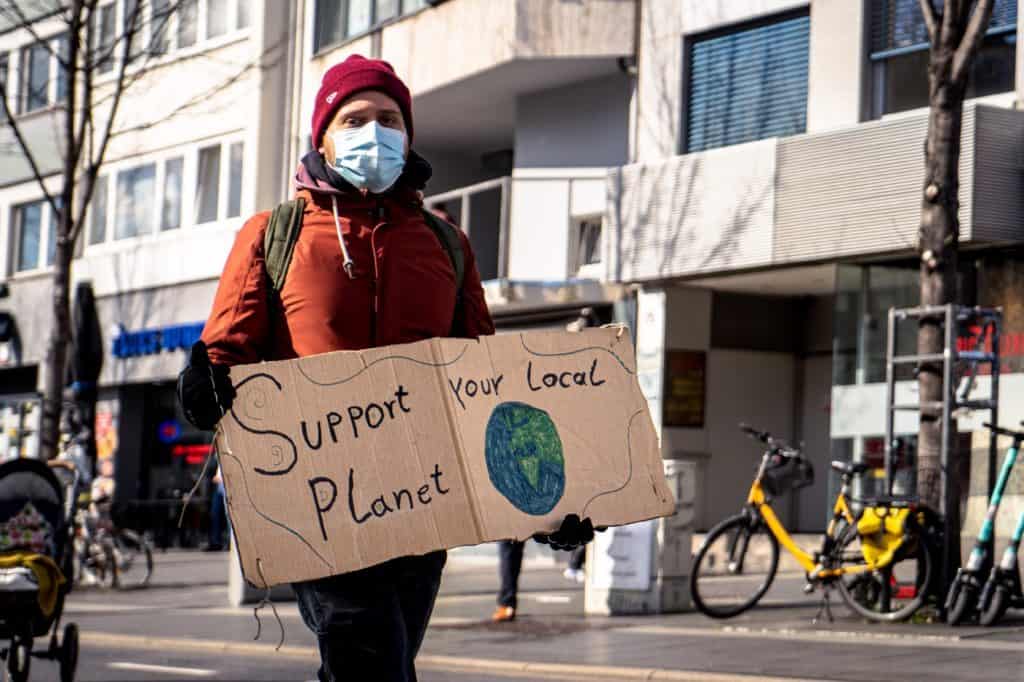Photo by Mika Baumeister on Unsplash
Mercy, mercy me
Mercy, mercy me
Things ain’t what they used to be
Where did all the blue skies go?
Poison is the wind that blows
From the North, South and East
Fish full of mercury…
- Marvin Gaye
In 1971, the great Soul singer Marin Gaye wrote the ecology song Mercy Mercy Me, expressing his sadness, fear and despair about the state of the Earth. The song was released on his classic album, What’s Going On, which speaks to the issues of war, drug abuse, racism and destruction of the environment. He was clearly ahead of his time, and was using the Black American ancestral practice of singing the Blues as a way to channel his anxiety about the state of the Earth.
Now, fifty-one years later, the American Psychological Association defines the climate blues (also known as eco anxiety or climate anxiety) as “chronic fear of environmental doom.” Major news outlets cover psychotherapists treating climate anxiety, framing the fear of environmental collapse as a psychological issue:
https://www.nytimes.com/2022/02/06/health/climate-anxiety-therapy.html and
Many of these stories focus on middle-class white people in the US or Europe who have access to therapy, quality medical care, and clean water and food. This framing of the issue leaves out most of the Global Majority who are Black, Brown, Indigenous, other communities of color, as well as poor whites, all of whom are more likely to live in areas of environmental degradation and have been experiencing the direct impacts of a collapsing ecosystem on their physical and mental health for decades. In fact, the threat of catastrophe, whether it be from ecosystem collapse or from living in an anti-Black world full of violence and oppression, has always been part of the emotional terrain that I live with. I have had to navigate these fears throughout my entire life.
When we only look at Climate Anxiety from an individual perspective we are missing the opportunity to widen our lens to get to the root of the issue and find an actual way to not only receive individual support, but make empowering connections with communities that are working to repair our relationships with the web of life.
“The climate,” extends far beyond our collapsing ecosystems and our mental and physical health but also our relationships with the Commons. The Commons includes the natural world and our relationships with the political and social systems on which we depend on for our survival.
When we classify climate anxiety as a mental health issue of individuals, we operate from a mindset of separation and fragmentation. That our mind is separate from our body, and separate from our neighbors, and our waters and forests. And then we leave the “cure” to a profession that isn’t designed or equipped to address the root causes of climate anxiety. Psychotherapists cannot heal or cure climate anxiety, as it is not a disorder only relegated to the mind.
Data from the Climate Change in the American Mind Report (authored by the Yale Program on Climate Change Communication and the George Mason University Center for Climate Change Communication) indicate that 60 percent of Americans view climate change as a political and humanitarian issue.
If most Americans see Climate Change as a political issue then what is the treatment for Climate Anxiety?
It can’t be found in the therapist’s office, in a pill or in a medical office. The field of treatment extends far beyond a relationship with a therapist or the medical establishment. The treatment must involve a holistic approach, that is embodied and rooted in a social and political framework, that works to repair our broken relationships with the web of life. The treatment must include the Commons as a political space of healing, equity and justice. This work is inherently political.
Climate anxiety does not just reside in the mind of individuals, but also in our political, cultural, social, judicial, health, and economic systems. These systems are implicated in the destruction of our ecosystems; this creates islands of fearful people with the privilege to access psychotherapy and insurance to rebuild when their houses burn down. And yet the Earth continues to burn, and social inequities increase while Americans bring their fear and unease about climate change to the therapist’s office.
A holistic treatment would be embodied and align with principles of equity and justice to build new systems and a culture that ensures that everyone has support and care. It would empower us to work together to mend our relationships with the web of life, including each other, the waters, the forests, and the animals. I am reminded of Indigenous communities’ call to honor “all of our relations.” We are rooted in relationships of connection with the waters, plants, sky, soil, animals and other humans in order to live on Earth. These deep relationships necessitate a new, non-extractive political and social order that does not take from the Earth without mending what was broken.
Healing climate anxiety requires our active involvement in political and economic systems, and in systems of care that support all of us especially the most vulnerable amongst us.
It requires a transformation of our identities from “consumers” and “therapy patients” to Community members who belong to, and care for, the Commons. Inner and outer work for Justice and equity for of all of our relations is the medicine that we all need to “cure” our climate anxiety.
When we view climate anxiety through a holistic lens of healing and justice, integrating inner and outer work, we find many ways to heal ourselves while also acting in the service of the natural world. That which promotes our own healing can also advance justice and equity for humans and nonhumans.
Anxiety puts one in a frozen state and we can be so preoccupied with our own fearful thoughts we can’t act. But maybe the fear is a sign, an awakening that can push us to get involved in the global task of social justice. After all, our lives and our children’s lives depend on all of us doing this important work. In the words of Ecofeminist scholar and anti- globalization activist Vandana Shiva, “In nature’s economy, the currency is not money, it is life.”

ECOTHERAPY PRACTICE TO CALM CLIMATE ANXIETY
Find a safe spot in nature to connect with regularly
This can be a local park, forest, or your porch or backyard or garden
Find a comfortable position
Begin to feel your feet or body or anyway you can connect with the Earth
Touch your heart, placing your hands on your chest area
Take a deep slow breath In focusing on the area of your heart for 3 breaths
Exhale for 4 -5 breaths
Do this heart breathing a few times
Name 1 or 2 things you are grateful for
Go to your nature spot regularly
OUTER WORK TO CALM CLIMATE ANXIETY
Learn about Environmental Justice Communities Needs and Help
Join a Community Garden and grow your food
Support Indigenous Communities such as the Indigenous Environmental Network https://www.ienearth.org/ and Indigenous Vision https://www.indigenousvision.org/
Support The Alliance for Ecotherapy & Social Justice https://theaesj.com/ as we work to bring Liberation Ecotherapy, nature based healing practices that also support social justice by making Ecotherapy more accessible to everyone.
Let’s connect!
Phoenix

